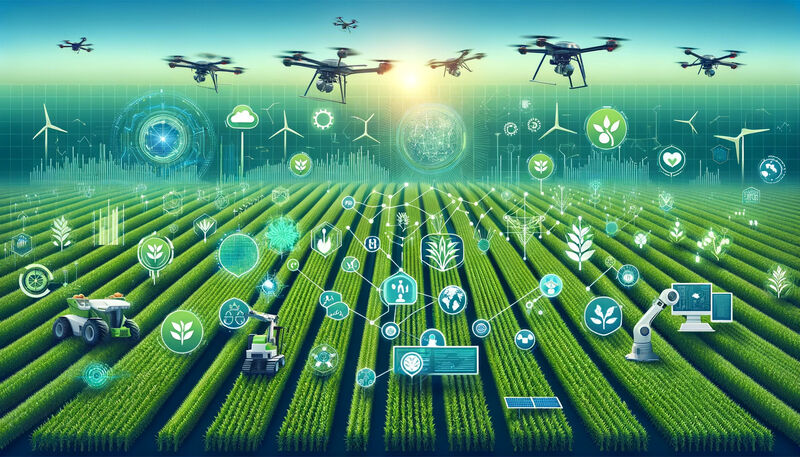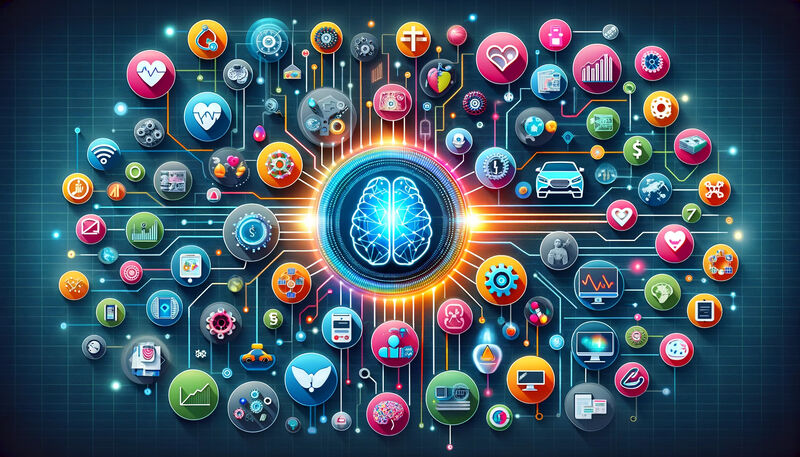AI in Agriculture: Boosting Efficiency and Sustainability in Farming Practices

The integration of Artificial Intelligence (AI) into agriculture is setting a new precedent for how food is grown, harvested, and distributed, marking a significant leap towards creating more efficient and sustainable farming practices. As the global population continues to rise, with estimates reaching 9.7 billion by 2050, the demand for food production will inevitably increase. Addressing this challenge requires innovative solutions that AI technology promises to provide. This article explores the transformative impact of AI in agriculture, highlighting its potential to revolutionize the sector.
Precision Farming and Crop Management
One of the most significant contributions of AI in agriculture is the advent of precision farming. By leveraging data from satellite images, drones, and ground sensors, AI algorithms can analyze soil health, moisture levels, and crop health in real-time. This information enables farmers to make informed decisions about planting, watering, and applying fertilizers or pesticides, optimizing resource use and minimizing environmental impact.
Disease and Pest Detection: AI-powered imaging systems can identify disease or pest infestations early, allowing for targeted intervention that can save entire crops from destruction. This precision reduces the need for broad-spectrum pesticide use, leading to healthier crops and less chemical runoff.
Livestock Monitoring and Management
AI is not only revolutionizing crop farming but also transforming livestock management. Wearable sensors and AI-driven monitoring systems can track the health, movement, and behavior of animals, providing insights that help improve welfare, productivity, and breeding.
Predictive Analytics for Health: By analyzing data collected from sensors, AI models can predict health issues in livestock before they become apparent, enabling preventive care and reducing mortality rates.
Supply Chain Optimization
AI extends its benefits beyond the farm, optimizing the entire agricultural supply chain. Predictive analytics can forecast demand more accurately, reducing food waste. Additionally, AI can streamline logistics, from storage to transportation, ensuring that produce reaches markets in optimal condition.
Automated Harvesting and Robotics: AI-driven robots and autonomous vehicles are being developed for tasks such as harvesting, weeding, and planting. These technologies not only reduce the labor required but also perform tasks more efficiently and with less waste.
Challenges and Future Prospects
While the potential of AI in agriculture is immense, its implementation faces several challenges. The high cost of AI technologies and the need for digital infrastructure can be prohibitive for small-scale farmers. Moreover, there is a need for technical knowledge and training to effectively use AI tools.
Despite these challenges, the future of AI in agriculture looks promising. Continued advancements in AI technology and increased accessibility could lead to widespread adoption, transforming agriculture into a more efficient, sustainable, and productive sector. Governments and private entities are increasingly investing in research and development to overcome current obstacles, indicating a strong commitment to harnessing AI's potential in agriculture.
In conclusion, AI in agriculture represents a pivotal shift towards more sustainable and efficient farming practices. By optimizing resource use, enhancing crop and livestock management, and improving supply chain efficiency, AI technologies have the power to meet the growing global food demand while minimizing environmental impact. As we continue to innovate and adapt, the role of AI in agriculture will undoubtedly expand, offering new solutions to age-old challenges and paving the way for a future where farming works in harmony with the environment.

